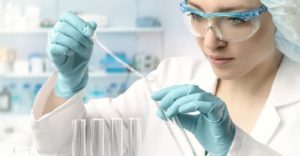
What we are NOT
If you were to Google the word “metal”, you will find the following definition: a material that is typically hard when in solid state, opaque, shiny and has a good electrical and thermal conductivity. Good to know? Sure! But does it pertain to CSL? Not really…
At times, we’ll receive inquiries regarding testing of steel, stainless steel, or other metals, which is easy to understand given that we say we test for Metals and Heavy metals. But to make it clear: we do NOT test structural steel, nor do we perform the determination of stainless steel grades or other analyses of steel components.
What we ARE
We ARE, however, a laboratory which tests the metals you find in the middle of the periodic table: the Transition metals (many are considered elemental impurities by the ICH Q3D like: cadmium, mercury, cobalt, nickel, vanadium), the Basic metals (elemental impurities like lead and tin), Semi-metals (elemental impurities like arsenic and antimony), Alkali metals (like sodium and potassium) and even Alkaline Earth elements (like magnesium and calcium).
Our clients span over various industries, so our work differs by each client’s need.
Examples of Our Clients’ Needs:
- Pharmaceutical companies need to make sure the elemental impurities in their products are below certain thresholds for daily intakes. Elements like lead, arsenic, cadmium and mercury (known as the “Big 4”) ARE NOT wanted in these types of products.
- Nutraceutical and dietary supplement suppliers are typically concerned about the “Big 4” heavy metals listed in the Prop 65 regulation, and hope these metals are not showing up in their supplements. CSL can also verify elements that are intentional in products such as sodium, potassium, magnesium and calcium.
- Natural product impurities can come from various sources and, therefore, need to be tested for impurities. If a material is mined (like calcium carbonate) or harvested, heavy metals exposure can occur. Whether from the soil, rain, harvesting machinery, the millers who grind the product, or the packaging, impurities can be present and it’s our job to detect them.
- Cosmetic companies are looking for the “Big 4” in lipsticks, eyeshadows, and blushes; titanium dioxide and zinc oxide as active ingredients in sunscreens and lotions; and aluminum & zirconium in deodorants
- Environmental samples- this can encompass many different elements to ensure that soil is safe, drinking water is non-hazardous, etc.
- Food companies- again, checking the ingredients of foods that are produced at high volumes for elemental impurities, gives companies peace of mind that they are releasing safe products into the market.
Simply put, we aim to provide our clients sound data so that they can be assured their skin care products are safe for use, their ingredients are safe to consume, and that they are producing medicines that will not unintentionally harm the recipients.
So, what is the bottom line of what we do here at CSL? We are testing to make sure what we put on or in our bodies is safe.
Contact us to learn more!



